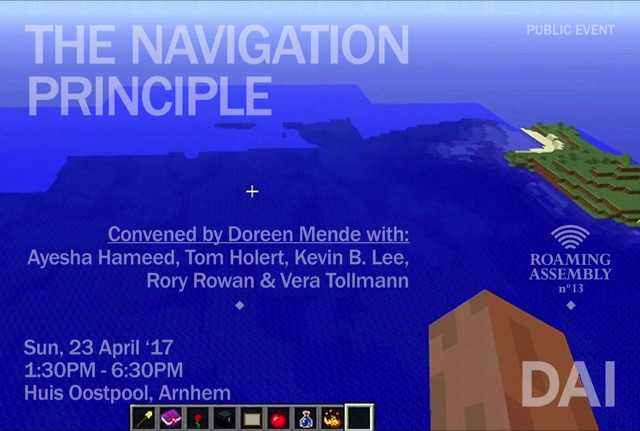2017 ~ Sunday April 23: ROAMING ASSEMBLY #13 ~ THE NAVIGATION PRINCIPLE: ‘Rethinking Geo-Politics in the Anthropocene - Notes on the Oceanic and the Computational’ ~ by Rory Rowan
Rethinking Geo-Politics in the Anthropocene - Notes on the Oceanic and the Computational
by Rory Rowan
The concept of the Anthropocene has been understood by many to have unsettled some of the fundamental assumptions of modern thought, including within the political domain, requiring a radical re-imagining of the material grounds of politics and establishing the planet not simply as a stage for the political but a dynamic actor within it.
However, even amongst those attempting to critically think through the ramifications of the changes the Anthropocene announces - and the stakes of the concept itself - have for the most part remained wedded to a terrestrial imaginary of the Earthly, leaving little room for thinking about, with or from the oceans and the constitutive role they play in the now deeply entangled and co-constitutive social and bio-geophysical processes of the planet. The division between land and sea that Carl Schmitt argued lay at the foundation of modern global political order – what he referred to as the ‘nomos of the Earth’ - remains today fundamental to international law and lies at the heart of some of the most contentious geopolitical disputes, whilst serving to conceal the ocean as a site of capital accumulation, environmental destruction and ecological inter-dependence with terrestrial dynamics, both social and ecological. Yet the concept of the Anthropocene, and indeed that of the planet as a set of complex systems rather than as the image of the globe or a mythical Earth, is the product of a vast technical appendage, at once material and virtual, produced from the vast network of orbital satellites, multiple data streams and computational models that conjure the Earth as a coherent object of science available for analysis and intervention. If the Anthropocene can be understood to demand a rethinking of the geo in geopolitics what happens when we approach this planet from the perspective of these two registers: the oceanic and the computational? How might the attempt to rethink geo-power and geopolitics - or perhaps think them for the first time – be shaped by setting sail from the epistemological grounds of the terrestrial and the imaginary of the globe as a singular object that can be apprehended without the work of computation?

